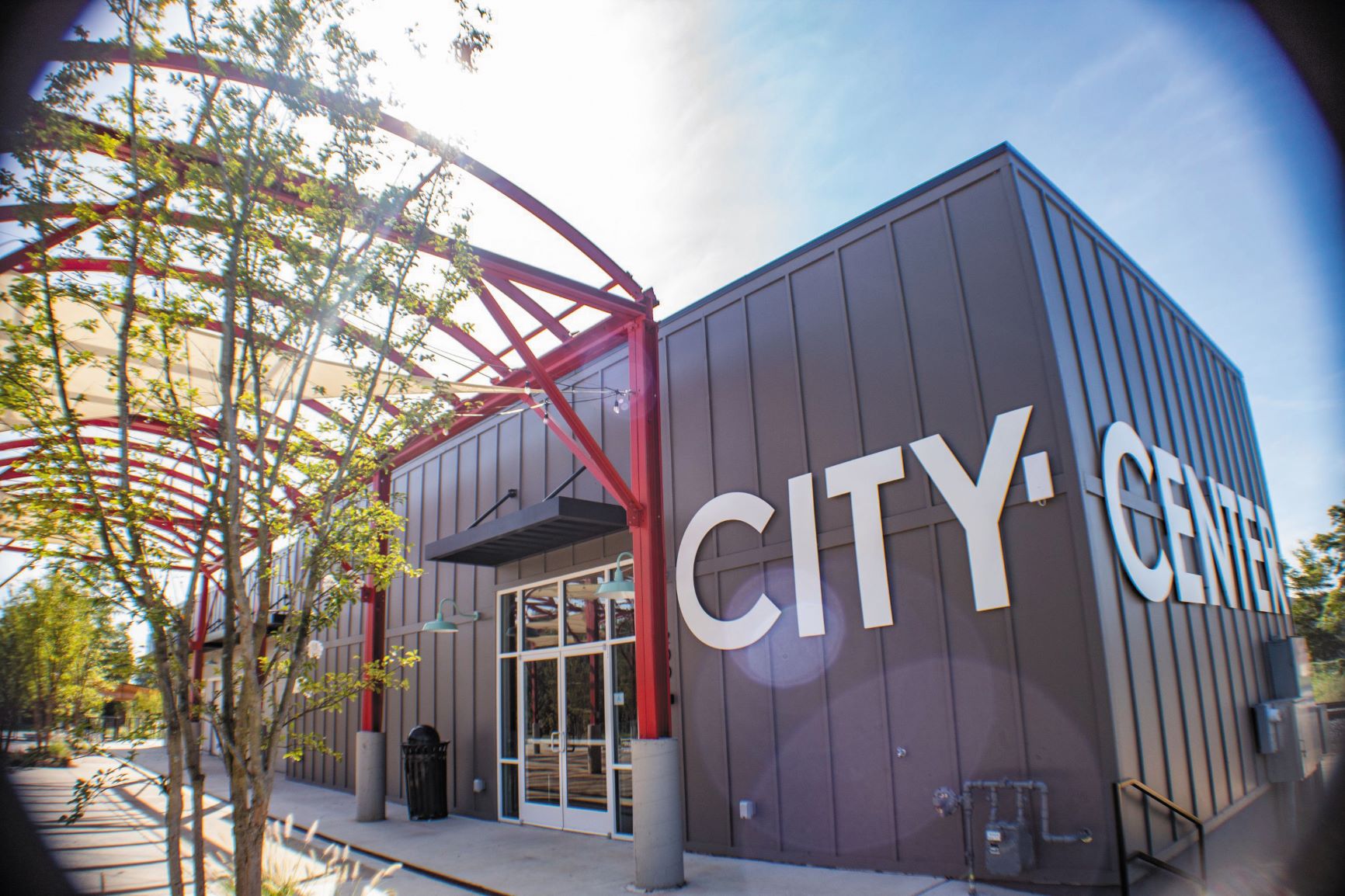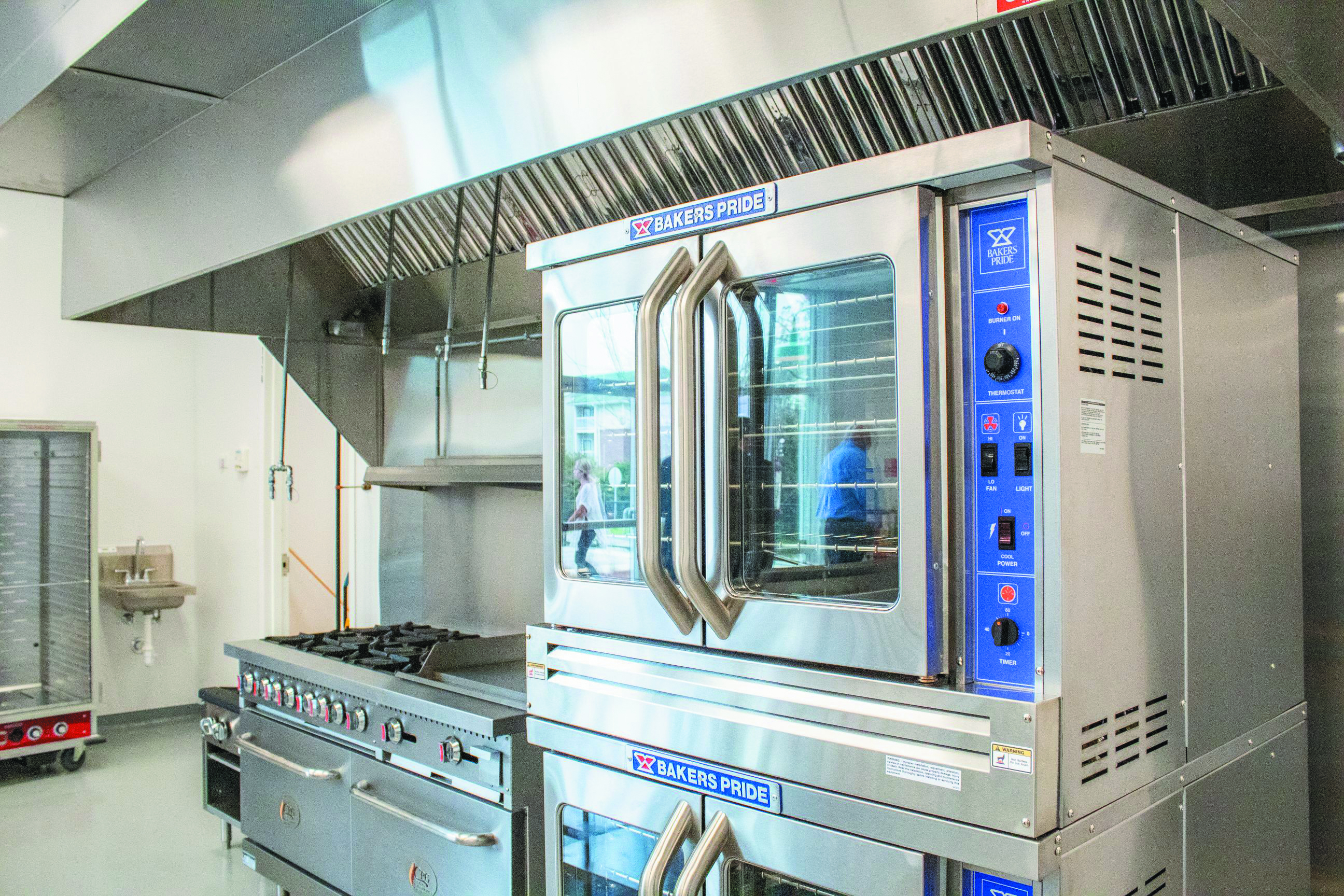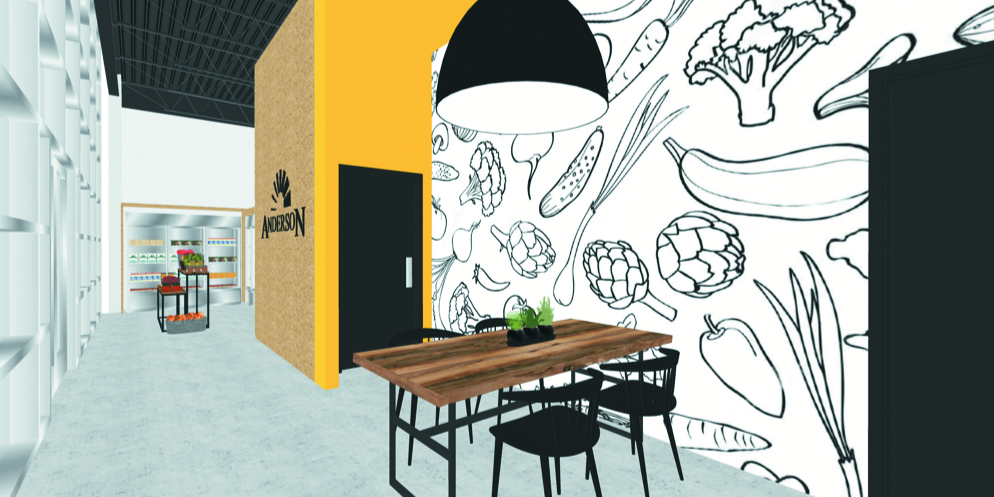City-sponsored commercial kitchens and incubators for food service businesses don’t just result in more food options and an enhanced quality of life — they make good business sense. Just ask a few cities where they are open or in the works.
In Florence, for example, a former warehouse for the Atlantic Coast Line railroad has been transformed into the City Center Market and Kitchen. The 800-square-foot commercial kitchen features rent-by-the-hour space where the city provides large appliances such as stoves, ovens, food processors, meat slicers and large stand mixers, offering entrepreneurs space to make and bake their goods.
“We opened the kitchen in September [2020] and by March we are practically over-subscribed in the rent-by-the-hour kitchen. I do think that COVID has had some impact on folks wanting to pursue new small business ideas, but that can’t be all of the demand on the space,” said Jennie Pezé, project manager for the City of Florence Local Foods Initiative.

Florence’s City Center Market and Kitchen offers rent-by-the-hour
commercial kitchen space. Photos: City of Florence

The city created the commercial kitchen to address food access from multiple angles — providing infrastructure for food entrepreneurs, creating a place for experimentation and a creative enterprise, and including a place to offer nutrition education. The city’s farmers market, hosted on the same property all year, offers a retail outlet for food producers.
“We are going for an innovative and multi-layered approach to building the community’s own ability to modernize the food culture,” Pezé said.
The kitchen received financing through TIF funds, or Tax Increment Financing funds. Repurposing the building and designating an overlay district was part of a larger effort to compliment Florence’s work to address community health and wellness, she said.
The Florence commercial kitchen was inspired by Colleton County Kitchen in Walterboro and the Blue Mountain Station in Dayton, Washington, which has a farmers market and food production incubator spaces.
The Florence facility also features three small private spaces for annual lease where food or artisan production businesses can get started, although Pezé said the city has had a more difficult time filling those “next-step” spaces with entrepreneurs who want to grow their local food businesses. Those tenants can be assisted in developing a transition plan by the Francis Marion University Kelley Center for Economic Development, and will be encouraged to participate in the weekly City Center Farmers Market.
The kitchen continues to grow in popularity, and nutrition classes will start soon. The facility originally planned these classes with HopeHealth and the SC Department of Health and Environmental Control, but delayed them since last spring because of COVID-19 concerns.
“We are looking at how to expand capacity with the kitchen and with nutrition education. The region needs a food hub, so we need to think about how to participate in that,” she said. “The farmers market, which complements the retail opportunities for some of the kitchen renters, is growing exponentially.”
In Anderson, the lack of commercial kitchen space has meant food entrepreneurs were forced to rent space from restaurants after regular business hours or from community facilities such as churches. Both of those options were problematic because of time constraints and scheduling issues. Other food entrepreneurs would leave Anderson and travel outside the region to use shared commercial kitchens.
The city decided to repurpose 2,500 square feet of city-owned property to create a shared kitchen incubator. Located on the street level of a downtown parking garage, the facility will feature two kitchens, one for general food production and one designed specifically for baking. Other amenities will include a packaging area, cold and dry rentable storage and retail space for product displays. Kitchen rentals will be available daily and programs will be scheduled every month, said Mary Haley Thompson, project manager in Anderson’s economic development office.

This rendering shows the design of Anderson’s planned kitchen incubator.
Photo: City of Anderson
Anderson’s City Council pursued this project with a vision and hope to see new businesses open, products launched and partnerships created around the local food industry, she said.
“A major obstacle for food industry entrepreneurs is the inability to access commercial kitchen space. Due to regulatory requirements and the high costs associated with commercial kitchen equipment, regional producers are unable to meet the consumer demand for such value-added products,” Thompson said. “City staff reported consistent feedback from our pipeline of local food entrepreneurs that support this need.”
Anderson was awarded $500,000 from the Appalachian Regional Commission and $500,000 from the U.S. Department of Agriculture’s Rural Business Development Grant program for the construction of the project, which is expected to be complete by early 2022.
Local food entrepreneurs are already eager to use the facility. Thompson said one of those entrepreneurs, Diane Leary, has been gifting her popular pimento cheese to friends and family for more than 40 years. She has never been able to sell the cheese because it would require the recipe be prepared in a kitchen approved by the SC Department of Health and Environmental Control. The Anderson kitchen will allow her the opportunity to sell her product and will provide additional income she wasn’t expecting as an 81-year-old, Thompson said.
Laurens doesn’t have a city-owned commercial kitchen, but a coworking and event space in a renovated downtown storefront allows food entrepreneurs and restaurants from other cities to host dining events. The Midtown Building, located right next to city hall, was a paint store before it was restored by private owners to showcase the original wooden floors and exposed brick walls.
Jonathan Irick, executive director of Main Street Laurens, said no food preparation takes place inside the building. Instead, restaurants set up mobile kitchens in the outdoor area and serve food indoors. It offers a chance for residents to enjoy types of food that aren’t readily available in Laurens.
For example, Halls Chophouse from Greenville served a four-course Valentine’s Day meal, while barbecue and sushi restaurants also have set up pop-up outdoor kitchens and served meals indoors. Take-out options also are available.
“It’s been a huge success. All of the events have sold out,” Irick said. “For one thing, they’re offering food we don’t have here in Laurens. It’s also the experience. This building was completely owner-financed and rehabbed during COVID. They bought it in December 2019 and started working on it in March 2020. All the renovations were done last year. In the middle of COVID, this was our bright spot.”
As the world begins to recover from the pandemic, shared commercial kitchens and incubators may even provide a few rays of hope for the future.
“Due to the recent global health crisis, the concept of a shared kitchen incubator may be an economic development trend and way of the future for food entrepreneurs,” Anderson’s Thompson said. “As food businesses have shut down around the world, shared kitchen incubators have the power to promote stability and reignite growth among those affected.”
